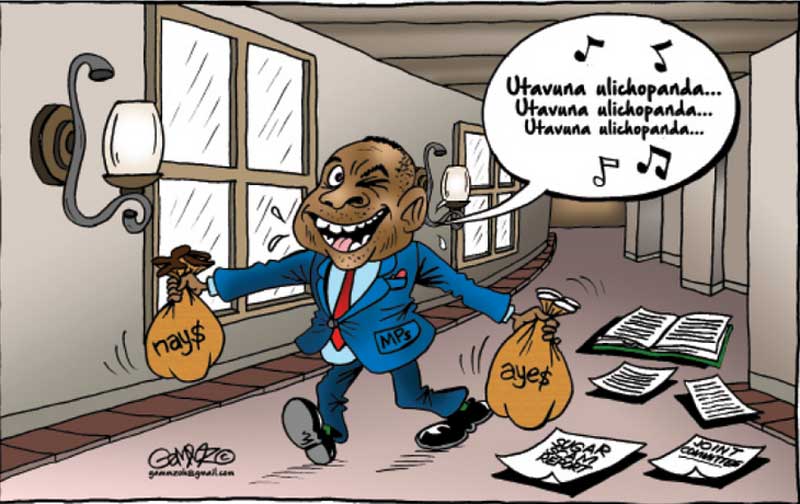×
The Standard e-Paper
Join Thousands Daily

That our MPs engage in brazen rent-seeking has not been in doubt. That they could do it so openly in the chambers like they did last Thursday is quite bewildering. When the 12th Parliament sat for the first time nearly a year today, we exhorted them to eschew the ways that had brought disrepute and mockery to their predecessors.